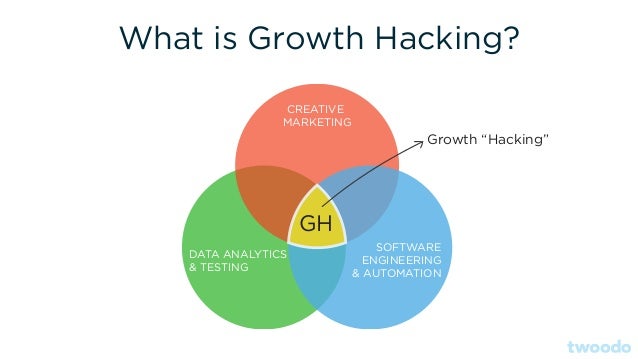You want to change the world - make it a better place. That's why you're in business (I hope). You want your business to succeed. You want investors to give you a check. You want this to happen soon - at least before you run out of cash and can no longer go on as a business.
"The IRS has a word for businesses that never make money - a hobby."
To have a real business (as opposed to a hobby), you must have some revenue. To get investor interest, you must have revenue growth. I can already hear the objections, "What about Company X? They're worth billions and nobody knows how they make money." When I was a kid, I played basketball and studied. There were kids that played basketball and never studied because, "NBA Player X makes millions and he never studied," implying that I was a chump and they were going to be a tycoon by focusing on basketball. The exception, whether you cite early Facebook, early Google, early Twitter, or whatever, DOESN'T APPLY TO YOU. You have a better chance of funding your company by buying a lottery ticket than believing that you're "the next Zuck."
When I was a kid, I played basketball and studied. There were kids that played basketball and never studied because, "NBA Player X makes millions and he never studied," implying that I was a chump and they were going to be a tycoon by focusing on basketball. The exception, whether you cite early Facebook, early Google, early Twitter, or whatever, DOESN'T APPLY TO YOU. You have a better chance of funding your company by buying a lottery ticket than believing that you're "the next Zuck." But what about the Lean Startup movement? Don't I need to do Customer Development before I can get revenue? If you're asking that question, then we have a semantics problem.
But what about the Lean Startup movement? Don't I need to do Customer Development before I can get revenue? If you're asking that question, then we have a semantics problem.
"A 'Customer' is someone who pays you."
Here are some lies you might be telling yourself and others: "We have over 1,000 customers, and 5 paying customers." "Paying customers" is redundant and "non-paying customers" is an oxymoron. Non-paying parties may be users, but they are not customers. They might be on a free trial - then they're prospects, not customers, not-even "trial customers" unless the trial is paid. Customers pay you for some value that you deliver. Period. Hacking is a methodology for optimizing something by running a set of smart experiments, learning from the data gathered and then running the next set of experiments. It is a scientific and creative process, and it's the most effective method we have ever developed for optimizing any aspect of a business. Growth hacking is this method applied to marketing. There are billions of people that are not aware of your product. You must run a plethora of campaigns to gain their awareness. Some of these campaigns will work better than others. By comparing the data, you can develop better and better awareness campaigns.Next you must get those aware of you to "sign up," or "activate," or "create an account," which means to convince them to let you know who they are. To do this you run a lot of activation campaigns, compare them and optimize them. Next, you need to engage these newly activated users in the hope of retaining them (get them to come back, to use your service or product over and over). To do this, you run lots of retention campaigns. You hope that your retained users like your company enough to recommend it to others. You run referral campaigns to optimize referral rates. Finally, your user agrees to buy something, subscribe to something, purchase something. Now, and only if and when revenue happens, you have a customer.
Hacking is a methodology for optimizing something by running a set of smart experiments, learning from the data gathered and then running the next set of experiments. It is a scientific and creative process, and it's the most effective method we have ever developed for optimizing any aspect of a business. Growth hacking is this method applied to marketing. There are billions of people that are not aware of your product. You must run a plethora of campaigns to gain their awareness. Some of these campaigns will work better than others. By comparing the data, you can develop better and better awareness campaigns.Next you must get those aware of you to "sign up," or "activate," or "create an account," which means to convince them to let you know who they are. To do this you run a lot of activation campaigns, compare them and optimize them. Next, you need to engage these newly activated users in the hope of retaining them (get them to come back, to use your service or product over and over). To do this, you run lots of retention campaigns. You hope that your retained users like your company enough to recommend it to others. You run referral campaigns to optimize referral rates. Finally, your user agrees to buy something, subscribe to something, purchase something. Now, and only if and when revenue happens, you have a customer. Once you have a customer (even just 1 customer), you can begin customer development. By comparing the data of how that customer went through the states of awareness, acquisition, retention, referral and revenue, you can start to get a picture what works and what doesn't. Then you can optimize your campaigns - all or them - for revenue. Until you have a customer, the best you can do is a local optimization, and that can be a trap! If all you can see is awareness and activation, you might be fooled into optimizing your campaigns to attract people who will NEVER BUY FROM YOU. That local maximum is an attractive nuisance and getting trapped there will kill your business.
Once you have a customer (even just 1 customer), you can begin customer development. By comparing the data of how that customer went through the states of awareness, acquisition, retention, referral and revenue, you can start to get a picture what works and what doesn't. Then you can optimize your campaigns - all or them - for revenue. Until you have a customer, the best you can do is a local optimization, and that can be a trap! If all you can see is awareness and activation, you might be fooled into optimizing your campaigns to attract people who will NEVER BUY FROM YOU. That local maximum is an attractive nuisance and getting trapped there will kill your business. Revenue hacking is a specific case of growth hacking which focuses on the entire funnel. Once you're focused on gaining customers and growing revenues, you may find that your campaigns change dramatically because now you're focused on what really matters to the group of people (customers) who buy your product or service. You can interview them, survey them, group them together, build personas for the groups, and begin to really understand the profile of your company's ideal customers. Your campaigns will be more intelligent, coming from a more holistic viewpoint, and more effective than before.You'll find that you can drive growth through the application of these campaigns - growth in revenue - and that you're able to optimize revenue growth. Now (and only now) you have something of interest to investors. It starts with the first customer. It doesn't matter how you get the first few customers as much as it matters that you have customers. Then you can begin to learn what you'll need to do to satisfy them, and get more.If you're not 100% focused on getting customers, you're hobby hacking, and talking to investors will only be a waste of your time and theirs. Want to change the world - make it a better place? Stop hobby hacking and start revenue hacking.
Revenue hacking is a specific case of growth hacking which focuses on the entire funnel. Once you're focused on gaining customers and growing revenues, you may find that your campaigns change dramatically because now you're focused on what really matters to the group of people (customers) who buy your product or service. You can interview them, survey them, group them together, build personas for the groups, and begin to really understand the profile of your company's ideal customers. Your campaigns will be more intelligent, coming from a more holistic viewpoint, and more effective than before.You'll find that you can drive growth through the application of these campaigns - growth in revenue - and that you're able to optimize revenue growth. Now (and only now) you have something of interest to investors. It starts with the first customer. It doesn't matter how you get the first few customers as much as it matters that you have customers. Then you can begin to learn what you'll need to do to satisfy them, and get more.If you're not 100% focused on getting customers, you're hobby hacking, and talking to investors will only be a waste of your time and theirs. Want to change the world - make it a better place? Stop hobby hacking and start revenue hacking.